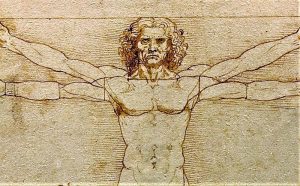Socialism
Among the political systems present in the governments of many countries, socialism is one of the most outstanding for its social impact and for the different approaches that have been given to this political and social theory that seeks as social welfare, to put all the means of social production in the hands of the State in order for it to administer them, in opposition to the capitalist system that seeks to develop private property for the development of the liberal economy. At present, socialism has been transformed identifying itself with positions that accept the free market but with the intervention of the State to give solution to social differences.
What is socialism?
Socialism is a system of political, social and economic organization based on the idea of placing all the production means and services of a nation under the administration of the State, acting as a great monopoly. There are various types of socialism in the world, represented in theories and forms of left-wing governments that are still active in many countries of the East and West. The most representative representatives of this system are Karl Marx and Friedrich Engels.
The socialist system seeks to ensure that the means of production and private property remain under the control of the government and that they are used for society by eliminating all capitalism from the nation’s economic apparatus.
Among the most representative characteristics of socialism we can mention:
- The State, having control of all the means of production and services, acts as a great monopoly.
- The State is the one who administers the means of production of the whole society.
- The State manages a centralized form of government where it takes care of the economic administration and manages the common good of the inhabitants.
- The state constantly intervenes in all social, economic, cultural and educational activities of the nation.
- It opposes the capitalist system.
- The only social class is the proletariat.
- It can function from a democratic regime.
- The citizen must subordinate himself to the needs of society rather than to his personal needs.
The origin of socialism can be found in Europe. After the French Revolution, the feudal monarchical system fells and a new power generated by the bourgeoisie began to be created. This gives rise to capitalism as a political-economic system in the nations and the new Nations-State begin to be conformed which would gradually industrialize, generating a new world phenomenon known as the Industrial Revolution.
In this new revolution, a social class known as the proletariat was born, made up of the working class that represented a majority in the population, which was going through very severe moments of misery, as opposed to the bourgeois class that represented a minority of the population and that represented the upper class of society.
Years later, the philosopher Karl Marx presents his work “The Capital” where he expresses his thought on the economy and the exploitation that is made about the working class. With the works of Marx many European socialist parties create their ideological bases and after the Russian Revolution and Lenin’s interpretation, the bases are developed for the communist parties grouped in the Third International.
After the Soviet Union liberates the countries occupied by Nazi Germany, it helps them to adopt the socialist system by generating a large territory for this system of government. This is how socialism takes on great importance in Europe in the 20th century after World War II and expands to countries in Central America and Asia.
It is important to mention that the countries that are part of the capitalist group headed by the United States entered into an unarmed conflict with the communist bloc, headed by the Soviet Union. This conflict was known as the Cold War. But as the years passed, the Soviet Union was divided by external and internal factors and the Cold War ceased.
For communists, socialism is a phase of transition between capitalism and communism, but no socialist country has managed to obtain the decreed benefits of communism; neither the USSR, nor Cuba, nor China.
Subsequently, with the arrival of the new millennium, Venezuelan President Hugo Rafael Chávez Frías, addresses for the first time on the subject of 21st century socialism with ideas of social and economic welfare that were never developed and that, on the contrary, keep the Venezuelan population in a constant economic, social and health deterioration that increases poverty and death rates.
Objectives
The objectives of socialism are based on the abolition of poverty, the achievement of general prosperity, progress, peace and fraternity among peoples. Unfortunately, these objectives have not been evident in socialist countries, as the results of the political and economic actions of socialist countries have failed in their implementation. Proof of this can be seen by studying the quality of people’s lives living in socialist regimes that do not have private property or free markets.
Types
Socialism has several types or currents, among which we can mention, as the most representative, the following:
- Utopian socialism: this philosophical current was born as a consequence of the industrial revolution and the period of enlightenment in which reference was made to the exploitation of man.
- Scientific socialism: This type of socialism takes into account the ideas proposed by utopian socialism but focuses more on the scientific analysis of the means of production under a scientific basis called dialectical materialism, which is used to explain and understand history.
- Social democracy: This approach to socialism includes democracy taking into account the ideas of utopian socialism and mixed economies, human rights, social security, without altering the means of production. Many socialist parties in the world follow this trend.
- Marxism-Leninism: this current was applied by the Soviet Union, a country that sought to create a communist world society but led by a centralized socialist state and a single Party that opposed capitalism and bourgeois democracy. All communist parties follow this socialist approach.
- Christian socialism: this approach comes from Catholic Church, affirming that Jesus Christ taught socialist ideas thus generating a thesis known as Liberation Theology which presents exploitation and poverty as a social sin. Many guerrilla groups in Latin America were linked to this socialist current.
Principles
Among the socialism principles we can mention the following:
- Individual actions and practices must benefit the collective.
- Sovereignty and autonomy focused on creating policies that free people from free market thinking or capital dependence.
- Overcoming self-centeredness.
- Creation of activities that minimize the impact on the environment in populations or communities.
- Self-sufficiency and self-government sustained in communes.
- Technological development to create new means of production.
- Artistic manifestations to reinforce the collective identity of people.
- Recovery of spaces expropriated by the bourgeoisie and local oligarchies.
- Transforming the means of production by changing the idea of how to produce and for whom.
Socialism’s importance
The importance of socialism can be seen in the left-wing parties in many countries.
For socialists, their theory is the most important and coherent for society because it leaves the means of production in the hands of the people and not in the hands of the big capitalists, giving importance to collectiveness. On the other hand, according to this theory, socialism prevents the generation of the capitalist individualism in people.
Among the main causes that generated the appearance of socialism we can mention:
- The machinery that slaved the worker and also generated his unemployment.
- Exploitation of the working class.
- The state of abandonment that the workers or proletarians had.
- The insensitivity of the bosses who acted in function of their profit and without caring for their workers.
- The poor distribution of wealth as the main cause of social misery.
Consequences
Socialism has generated many positive and negative consequences depending on how it has been applied and how the economy has been managed within nations. An example of this can be seen in many socialist parties in Europe that have defended social equality and support for economic, educational and cultural development in many countries without nationalizing the means of production and allowing free markets and private property.
However, in Latin American countries such as Cuba or Venezuela, where socialism is presented as communism and where the State has taken control of the production means and there is no private property, the quality of life is limited by the government that does not export or import any product because the economic system is in total deterioration and the means of production are increasingly deficient.
Another negative example of the consequences of the socialist system was what happened in the Soviet Union, a bloc that suffered a great deterioration on a social and economic level, and in which more people died than in the Nazi Holocaust and that ended in 1987 with Perestroika, a political, economic and social restructuring that opened Russia to free market, allowed private property and allowed trade with the West.
Among the representatives of socialism, the most emblematic are Karl Marx and Friedrich Engels.
Karl Marx
Karl Marx is a German thinker of Jewish origin, born in 1810 in the city of Trier. Known as the father of scientific socialism, he studied the social reality of his time and generated theories about capital, labor and wealth that had a great impact on the working masses worldwide. His greatest work is “Capital“, known as the bible of socialism, has the following statements:
- Wealth comes from work and the value of objects depends on work.
- Capital has no value on its own, and it is dead labor that can only gain new life by exploiting the proletarian.
- Only the work of the worker produces value and for this reason the profits should be focused on the workers and not on the capitalists. For this reason, workers must be divided over the profits of industry.
- Labor is a commodity tied to the exploitation of capitalists and trade.
- The government must be at the service of the proletariat.
- The accumulation of surplus value generates private wealth and this results from not paying the worker properly.
Friedrich Engels
Friedricho or Federico Engels, is a German thinker and socialist born in 1820 in Barmen, Germany. He was interested in the revolutionary movements of his time, the situation of the working class of 1845 and socialist groups.
One of his best-known works, “The Communist Manifesto,” was produced in collaboration with Karl Marx in 1848. The following principles are used in this document:
- Historical materialism is determined by economic factors.
- The class war in the capitalist stage, is the confrontation between the bourgeoisie and the proletariat.
- The new socialist society will emerge from the proletariat’s triumph, eliminating social classes, abolishing private property and placing the means of production and change in the hands of society.
How to cite this article?
Briceño V., Gabriela. (2019). Socialism. Recovered on 4 January, 2025, de Euston96: https://www.euston96.com/en/socialism/










